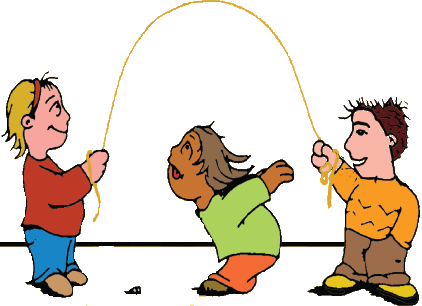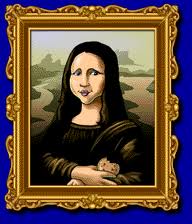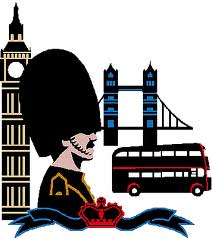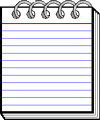Idiomas (inglés y francés).
Passé Composé. 2º ESO. Francés.
La Descripción y otros contenidos. Francés, 5º Primaria. Apoyo.
Adjetivos posesivos y presente simple. Inglés 1º ESO.
¡"Yes" al inglés! Apoyo 1º ESO.

Ejercicios de inglés. Presente simple y presente continuo. 1º ESO.
Resumen francés. Unidad 2.

Resumen Frances.
Tema 2.
Paroles pour...
Acheter:
combien ça coûte ?
Il/ Elle coûte combien.
C’est cher/ ce n’est pas cher.
C’est bon marché.
Palabras para..
comprar:
-¿ cuanto cuesta?
El/ ella cuesta...
Es caro/ no es barato.
Es barato
Adjetivos demostrativos:
| Singular | plural |
Masculino | ce. cet * | Ces |
feminino | cette | Ces |
* cet → se pone cuando una palabra empieza por vocal.
Gramática:
Las palabras acabadas en Ton son masculinas y las acabadas en tion femeninas.
Être train de:
En francés, el presente progresivo se forma de la siguiente forma:
Sujeto + verbo être + train de + verbos en infinitivo.
Negación:
La negación está formada por el
en + pas. El en se pone delante y el pas de tras.
Tambien está :
ne + Rien → ( nada )
ne + personne → (nadie)
ne + jamais → ( nunca )
Liaison:
Es la pronunciación conjunta de una consonante normalmente muda con la vocal inicial de la siguiente palabra.
Ejemplo : nous avons: se pronuncia como si fuese una sola palabra.
Faire → para hablar de las actividades: utilizamos :
Du → masculino / singular.
De la → femenino singular.
De l’ → empieza en vocal.
Des → plural.
Para preguntar el motivo de algo :
por qué ? : pourquoi ?
Respuesta: parce que / car / puisque ; pour + infinitif: Porque/ ya que / porque, por + infinitivo.
Vocabulario
Argent: Dinero
Vetement: prendas
Taille: tallas
Un pul: un jersey
Un patalon: un pantalón
Une jupe: una falda
Une chemise: una camisa
Un tee- shirt: una camiseta
Une robe : un vestido
Des chaussettes: calcetines
Des guants: guantes
Des basket: zapatillas de deporte.
Des chausseres: zapatos.
Des mas: medias
Le coton: algodón
La soie: seda
La laine: lana
Été: verano
Printemps: primavera
Hiver: invierno
Automme: otoño
¡Mucho inglés! Recursos para Primaria, Secundaria, Bachiller!
Resumen Inglés. 2º ESO.

NUEVO RESUMEN INGLÉS.
Vocabulary
build: construir
buy: comprar
climb: subir
cook: cocinar
dance: bailar
do: hacer
draw: dibujar
drink: beber
drive: conducir
eat: comer
enjoy: disfrutar de
fly: volar
get up: levantarse
go: ir
hear: escuchar
jump: saltar
know: saber
learn: aprender
leave: dejar
lie: mentira
like: gustar
listen: escuchar
look: buscar
love: amar
make: hacer
meet: cumplir
paint: pintura
play: jugar
push: empuje
rain: llover
read: leer
ride: pasear
run: ejecutar
see: ver
sell: vender
sing: cantar
sit: sentarse
sleep: dormir
speak: hablar
spend: pasar
stand: soportar
stay: estanciar
stop: parar
talk: hablar
teach: enseñar
tell: decir
think: pensar
try: probar
understand: entender
use: usar
wait: esperar
walk: andar
want: querer
watch: ver
work : trabajar
write: escribir
Can / Can't
Affirmative: Subject + can.
Negative: Sub + can't (cannot).
Interrogative: Can + subject?
We use can + verb to talk about ability or to ask permission.
Grammar
The Present Continuous
AFFIRMATIVE | NEGATIVE | INTERROGATIVE |
| LONG FORM | SHORT FORM | LONG FORM | SHORT FORM |
|
|---|---|---|---|---|
I am eating | I'm eating | I am not eating | I'm not eating | Am I eating? |
You are eating | You're eating | You are not eating | You aren't eating | Are you eating? |
He is eating | He's eating | He is not eating | He isn't eating | Is he eating? |
She is eating | She's eating | She is not eating | She isn't eating | Is she eating? |
It is eating | It's eating | It is not eating | It isn't eating | Is it eating? |
We are eating | We're eating | We are not eating | We aren't eating | Are we eating? |
You are eating | You're eating | You are not eating | You aren't eating | Are you eating? |
They are eating | They're eating | They are not eating | They aren't eating | Are they eating? |
GRAMMAR
| British English | American English |
|---|---|
I have got a brother | I have a brother |
I haven't got a brother | I don't have a brother |
SPELLING
| British English | American English |
|---|---|
favourite | favorite |
colour | color |
programme | program |
VOCABULARY
| British English | American English |
|---|---|
autumn | fall |
film | movie |
flat | apartment |
football | soccer |
lift | elevator |
lorry | truck |
motorway | highway |
petrol | gasoline |
shop | store |
sweet | candy |
trousers | pants |
Repaso control francés UNIDAD 2. 5º Primaria.

Pincha aquí y podrás leer, escribir y estudiar todo lo que ya has dado, para así poder repasar la UNIDAD 2.
Verbo to have y plural. Inglés 1º ESO.
Repaso francés. Vocabulario, oraciones, traducir, verbos.

Entra en el siguiente enlace y realiza las actividades de repaso que aparecen.
Actividades inglés. Rellenar huecos y otro tipo de actividades.

Pincha aquí y entra para realizar las actividades que necesites. Consulta antes con tu maestro/a.
Francés. 5º. Nombres y oraciones.

Pincha aquí para realizar las actividades de francés que aparecen. Nombres y oraciones.
Francés para 5º Primaria.

Pincha aquí y podrás repasar diferentes contenidos del área de Francés. ¡Ánimo!
UNIDAD 3. INGLÉS 2º ESO.

UNIDAD 3. WHAT ARE YOU DOING?
Vocabulary
Search: build, buy, climb, cook, dance, do, draw, drink, drive, eat, enjoy, fly, get up, go, hear, jump, know, learn, leave, lie, like, listen, look, love, make, meet, paint, play, push, rain, read, ride, run, see, sell, sing, sit, sleep, speak, spend, stand, stay, stop, talk, teach, tell, think, try, understand, use, wait, walk, want, watch, work, write.
Activities
1.- Vocabulary verbs.
2.- Daily routines.
Functions
Abilities: can, can't.
Activities
1.- Complete the dialogue with the words below.
Can – want – can't – course – play – learn.
Brad: What do you _________ to do now?
John: Let's go and __________ pool. ____________ you play pool, Brad?
Brad: No, I _________ . But I can _______ .
Rosa: Of _________ you can.
2.- Complete the dialogue with the phrases below.
I also spend hours surfing the Internet.
You're just like my brother!
I prefer sports.
What do you like doing?
Brad: ________________________________
Rosa: I love working on the computer. _______________________
Brad: ________________________ . I like soccer -football to you- and basketball.
Rosa: __________________________________
Grammar
The Present Continuous
AFFIRMATIVE | NEGATIVE | INTERROGATIVE |
| LONG FORM | SHORT FORM | LONG FORM | SHORT FORM |
|
|---|---|---|---|---|
I am eating | I'm eating | I am not eating | I'm not eating | Am I eating? |
You are eating | You're eating | You are not eating | You aren't eating | Are you eating? |
He is eating | He's eating | He is not eating | He isn't eating | Is he eating? |
She is eating | She's eating | She is not eating | She isn't eating | Is she eating? |
It is eating | It's eating | It is not eating | It isn't eating | Is it eating? |
We are eating | We're eating | We are not eating | We aren't eating | Are we eating? |
You are eating | You're eating | You are not eating | You aren't eating | Are you eating? |
They are eating | They're eating | They are not eating | They aren't eating | Are they eating? |
We use the Present Continuous to talk about things that are happening now.
Remember: Some verbs do not take the Present Continuous form. These are stative verbs. (want, like, understand, love, hear...).
Spelling
write = writing
sit = sitting
try = trying
lie = lying
die = dying
Time Expressions
now, right now, at the moment, today, this week / month / year, etc.
Activities.
1.- Write in the Present Continuous.
2.- Choose the correct answer.
Pamela is riding / are riding her bike to school today.
The boys is going / are going camping now.
My father isn't cooking / are cooking dinner now.
Is / Are the children playing tennis?
I am reading / is reading a great book at the moment.
Mum is cleaning / are cleaning the kitchen now.
My friends isn't having / aren't having a party at the moment.
Am / Is I studying for a test this week?
Listen! The birds is singing / are singing in the trees.
Ned is running / am running in the park right now.
3.- The Present Continuous. Form: Exercise 1.
4.- The Present Continuous. Form: Exercise 2.
5.- The Present Continuous. Form: Exercise 3.
Contrast of Present Continuous and Present Simple.
We use the Present Continuous to talk about things that are happening now.
We use the Present Simple to talk about regular habits and actions.
Activities.
6.- Complete the sentences with the correct time expressions.
I have breakfast every day / at the moment.
He is working at home now / every day.
She's playing basketball on Sundays / at the moment.
He sees his grandparents every week / now.
7.- Write these sentences in Present Continuous or Present Simple.
8.- Present Simple or Continuous. Contrast: Exercise 1.
9.- Present Simple or Continuous. Contrast: Exercise 2.
10.- Choose the correct form of the verb.
Shasta plays / is playing basketball every Monday.
John looks / is looking at an aeroplane now.
Rosa learns / is learning a new computer program at the moment.
Gramática Inglés. Primer ciclo Secundaria. Contables e incontables.
Repaso verbos Francés 2º ESO.

Verbos Francés
Être: Je suis ( yo soy / estoy)
Tu es ( tu eres / estás)
Il/elle est (el / ella es/está )
Nous sommes ( Nosotros somos / nosotros estamos )
Vous êtes ( Vosotros sois / vosotros estaís )
Ils/elles sont ( Ellos son / ellos están )
Avoir: J’ai ( yo he / tengo)
Tu as ( tu has / tienes)
Il/elle a (el / ella ha / tiene )
Nous avons ( Nosotros hemos / nosotros tenemos )
Vous avez ( Vosotros habéis / vosotros tenéis )
Ils/elles ont ( Ellos han / ellos tienen )
Aller: je vais ( yo voi )
tu vas ( tu vas )
il/elle va ( el/ella va )
nous allons ( nosotros vamos )
vous allez ( vosotros vais )
ils/elles vont ( ellos/as van )
Boire: je bois ( yo bebo)
tu bois ( tu bebes )
il/elle boit ( el/ella bebe )
nous buvons ( nostros bebemos )
vous buvez ( vosotros bebéis )
ils/elles boivent ( ellos/as beben )
Voir: je vois ( yo observo )
tu vois ( tu observas )
il/elle voit ( el/ella observa )
nous voyons ( nosotros observamos )
vous voyez ( vosotros observáis )
ils/elles voient ( ellos/as observan )
Preferer: je préfère ( yo prefiero )
tu préfères ( tu prefieres )
il/elle préfère ( el/ella prefieren )
nous préférons ( nosotros preferimos )
vous préférez ( vosotros preferís )
ils/elles préfèrent ( ellos/as prefieren )
Dire: je dis ( yo digo )
tu dis ( tu dices )
il/elle dit ( el/ella dice )
nous disons ( nostros decimos )
vous dites ( vosotros decís )
ils/elles disent ( ellos/as dicen )
Faire: je fais ( yo hago )
tu fais ( tu haces )
il/elle fait ( el/ella hace )
nous faisons ( nosotros hacemos )
vous faites ( vosotros hacéis )
ils/elles font ( ellos/as hacen )
Ouvrir: j’ouvre ( yo abro )
tu ouvres ( tu abres )
il/elle ouvre ( el/ella abre )
nous ouvrons ( nosotros abrimos )
vous ouvrez ( vosotros abrís )
ils/elles ouvrent ( ellos/as abren )
Parler: je parle ( yo hablo )
tu parles ( tu hablas )
il/elle parle ( el/ella habla )
nous parlons ( nosotros hablamos )
vous parlez ( vosotros hablamos )
ils/elles parlent ( ellos/as hablan )
Aimer: j’aime ( yo amo )
tu aimes ( tu amas )
il/elle aime ( el/ella ama )
nous aimons ( nosotros amamos )
vous aimez ( vosotros amáis )
ils/elles aiment ( ellos/as aman )
Habiter: j’habite ( yo vivo )
tu habites ( tu vives )
il/elle habite ( el/ella vive )
nous habitons ( nosotros vivimos )
vous habitez ( vosotros vivís )
ils/elles habitent ( ellos/as viven )
Regarder: je regarde ( yo miro )
tu regardes ( tu miras )
il/elle regarde ( el/ella mira )
nous regardons ( nosotros miramos )
vous regardez ( vosotros miráis )
ils/elles regardent ( ellos/as miran )
Manger: je mange ( yo como )
tu manges ( tu comes )
il/elle mange ( el/ella come )
nous mangeons ( nosotros comemos )
vous mangez ( vosotros coméis )
ils/elles mangent ( ellos/as comen )
Venir: je viens ( yo vengo )
tu viens ( tu vienes )
il/elle vient ( el/ella viene )
nous venons ( nostros venimos )
vous venez ( vosotros venís )
ils/elles viennent ( ellos/as vienen )
Porter: je porte ( yo llevo puesto )
tu portes ( tu llevas puesto )
il/elle porte ( el/ella lleva puesto )
nous portons ( nosotros llevamos puesto )
vous portez ( vosotros lleváis puesto )
ils/elles portent ( ellos/as llevan puesto )
Penser: je pense ( yo pienso )
tu penses ( tu piensas )
il/elle pense ( el/ella piensa )
nous pensons (nosotros pensamos )
vous pensez ( vosotros pensáis )
ils/elles pensent ( ellos/as piensan )
Trouver: je trouve ( yo encuentro )
tu trouves ( tu encuentras )
il/elle trouve ( el/ella encuentra )
nous trouvons ( nosotros encontramos )
vous trouvez ( vosotros encontráis )
ils/elles trouvent ( ellos/as encuentran )
Prendre: je prends ( yo tomo )
tu prends ( tu tomas )
il/elle prend ( el/ella toma )
nous prenons ( nosotros tomamos )
vous prenez ( vosotros tomáis )
ils/elles prennent ( ellos/as toman )
Acheter: j’achète ( yo compro )
tu achètes ( tu compras )
il/elle achète ( el/ella compra )
nous achetons ( nosotros compramos )
vous achetez ( vosotros compráis )
ils/elles achètent ( ellos/as compran )
El Imperativo
Sabiendo toda esta "teoría" será mucho más sencillo aprender y conjugar el resto de verbos. ¡Adelante!
-ER: Para la segunda persona del singular (tu) el imperativo se forma quitando la (s) al verbo y también el pronombre personal.
Ej: Tu chantes – tú cantas
Chante! ( canta )
Ej: Tu manges – tú comes
Mange! ( come )
- Para la segunda persona del plural (vous) se queda todo igual pero le quitamos el pronombre personal.
Ej: Vous mangez – Vosotros coméis
Mangez! ( comed )
-IR, RE O IRREGULARES: El imperativo se forma igual que en el caso anterior, es decir, el verbo no varia pero quitamos el pronombre personal.
Ej: Prendre – tu prends
Prends ( coge )
Ej: Tu viens – Viens ( ven )
Para hacer la negación en IMPERATIVO en todos los verbos se pone ( NE + PAS ) en medio del verbo.
Ej: ne viens pas!
Inglés para el Primer Ciclo ESO.

Enlace con actividades de repaso para el primer ciclo de ESO. Área de Inglés.
Vocabulario inglés. UD 2 2º ESO. Presente simple.

Ejercicios repaso presente simple. Pinchad aquí.
VOCABULARIO:
Vocabulario
Bear: oso
Beatiful: bonito, precioso
Tuna: atún
Bee: abeja
Turtle: tortuga marina
Beette: escarabajo
Ugly: feo
Big: grande
Wasp: avispa
Bird: pájaro
Whale: ballena
Buttelfly: mariposa
Camel: camello
Chimpanzee: chimpancé
Cocodrile: cocodrilo
Dangerous: peligoso
Dolphin: delfín
Eagle: águila
Fast: rápido
Fish: pez
Flamingo: flamenco
Funny: gracioso
Goldfish: pez de colores
Gorilla: gorila
Hippopotamus: hipopótamo
Insect: insecto
Lion: león
Lizard: lagarto
Long: largo
Mammal: mamífero
Monkey: mono
Ostrich: avestruz
Penguin: pingüino
Rattlesnake: serpiente de cascabel
Reptile: reptil
Rhinoceros: rinoceronte
Salmon: salmón
Seal: foca
Shark: tiburón
Slow: mofeta
Small: pequeño
Snake: serpiente
Strange: extraño
Stronge: fuerte
Strong: fuerte
Tiger: tigre







